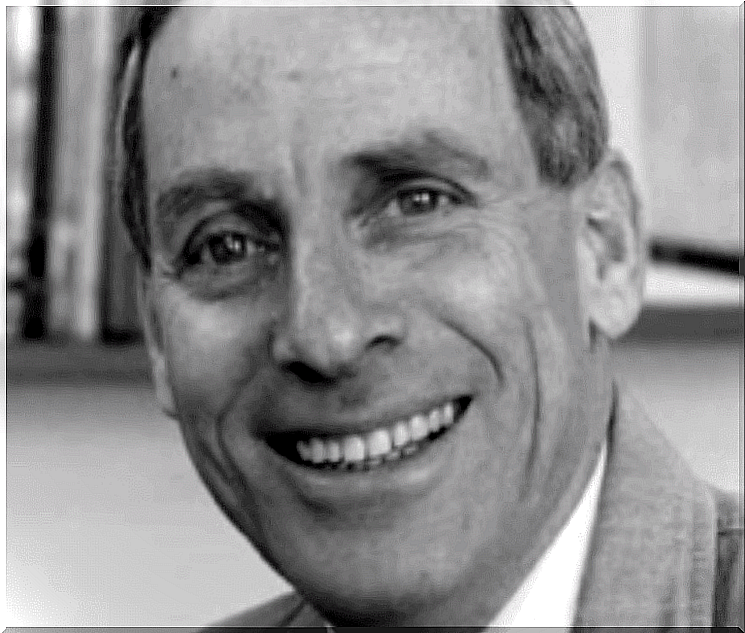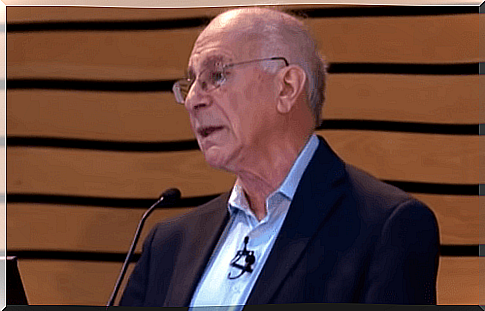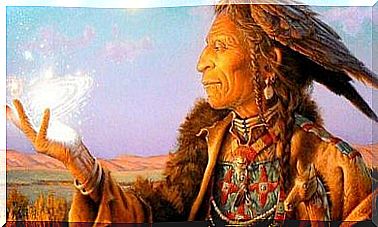Amos Tversky, Cognitive Psychologist And Special Mathematician

Amos Tversky was born in 1937 in the city of Haifa in Israel. He was a famous cognitive psychologist as well as a mathematician who developed a completely peculiar and new concept in the field of psychology called cognitive skew. He is also considered a pioneer of cognitive science, that is, the father of the field of psychology that studies the mental processes associated with knowledge.
During his professional career, Amos Tversky had a close friendship with Daniel Kahneman. Kahneman won the Nobel Prize in Economics for his theories, which he developed in collaboration with Tversky. Let’s dive a little deeper into the fascinating life story of this ingenious thinker.

Biography of Amos Tversky
As we said at the beginning, Amos Tversky was born in the city of Haifa in Israel. His father was a veterinarian and his mother a social worker, later a member of Parliament representing the Workers’ Party (Mapai). Tversky also had a sister 13 years older than her.
As a teenager, Tversky became enthusiastic about literary criticism. And not only that, but he also rose to leadership in the Nahal movement, a youth movement opposed to compulsory military service. Later in his life, Amos Tversky became a paratrooper of the Israeli Defense Forces and even earned a medal for his courage.
In 1961, Tversky graduated from the Hebrew University of Jerusalem. Four years later, he completed his doctoral dissertation at the University of Michigan and began working as a psychologist as well as a professor and researcher in economics.
Tversky’s last job was at the Center for Advanced Study at Stanford University’s Department of Behavioral Sciences. He worked there until 1996, when he died of melanoma at the age of 59.
Amos Tversky and Daniel Kahneman
The friendship between Amos Tversky and Daniel Kahneman made them work together more than once. Their first joint publication was an article called “Belief in the Law of Small Numbers”. This joint effort was quite influential in the field of economics. The men continued to work together on many other publications, such as “Judgment Under Uncertainty: Heuristics and Biases” and “On the Psychology of Prediction”.
Their collaboration led to such important results that when Kahneman won the Nobel Prize six years after Tversky’s death, he stated: “The work quoted by the Nobel Committee was done in collaboration with Amos Tversky (1937-1996) and is the result of a long and particularly close collaboration. Together, we explored the psychology of intuitive beliefs and choices and explored their limited rationality. ” His full speech is available in English on the Nobel Prize website titled “Maps of Bounded Rationality”.

Awards and recognitions
Tversky’s contribution to cognitive psychology was very important, which is why he received several awards and recognitions for his research work. One of the most notable recognitions was that he was elected a member of the American Academy of Arts and Sciences. He also received the Valuable Scientific Contribution Award from the American Psychological Association.
Finally, Amos Tversky was awarded numerous honorary doctorates from universities such as the University of Chicago, the University of Gothenburg, and the State University of New York, among others.
As you can see, Amos Tversky was a pioneer in cognitive psychology. Together with Daniel Kahneman, he made significant achievements in the field. Tversky also developed an intelligence test that measures how well individuals know how to reason using probability theory. This test is called the Tversky Intelligence Test.
All of Amos Tversky’s publications are interesting and available to both psychologists and ordinary people. His concept of cognitive skew was previously unseen and ingenious, and the way he worked simultaneously in psychology and mathematics was impressive. If you want to explore more of this fascinating scientist and his joint work with Daniel Kahnemanin, we recommend reviewing the book An undoing Project: A Friendship That Changed Our Minds (infatuation) , which was written by Michael Lewis.









